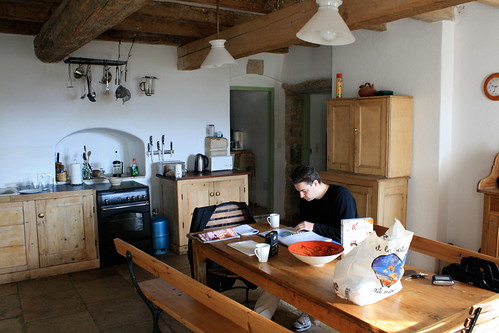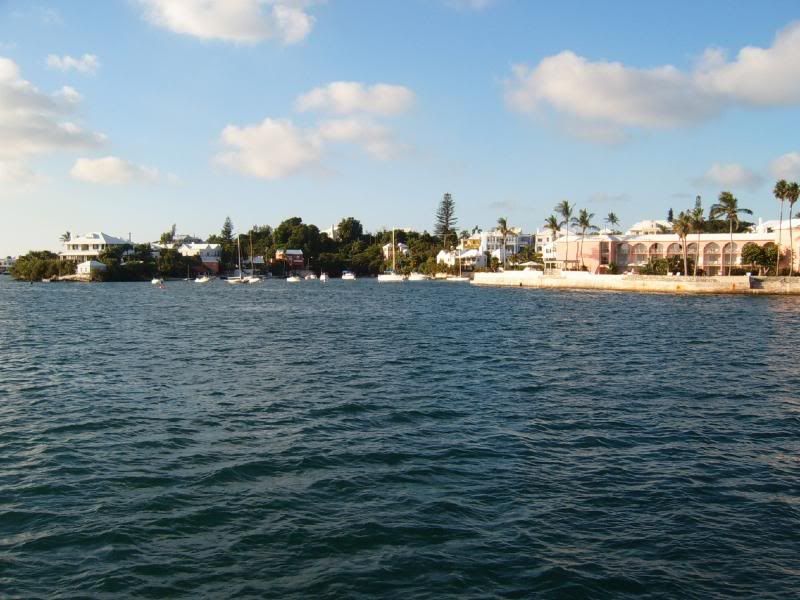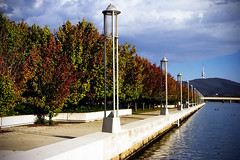OK, so you've already read Part 2 and you've started laying the foundations for getting a job in another country. Now what? Find the damned country.
Assessing your opportunities
The first thing you need to do is develop a plan. It's easier if you target just one country as you can become more familiar with it. You need to be familiar with:
- Shortage occupations
- Work permit process
- Local news
- Employer advertisements
Many countries have shortage occupation lists, though often under different names, and you might be surprised at some of the jobs on them. For example, the
UK shortage occupation list has social workers in child and family services, but who would have thought that "social worker" is a high demand job? Basically, review these lists for the countries you're interested in and ask yourself one question: could I get hired in this job in my home country? If the answer is "yes", you've got a winner. These are high-demand jobs in those countries and they're much easier to get work permits for. Because they're shortage occupation lists, employers are often more willing to be flexible.
Next, learn everything you can about the work permit process for that country. Want to live in Australia?
Start by reading this employer information. I said "start". You're not going to finish there. You have to keep reading and reading and reading. You have to know their work permit process backwards and forwards. You might think "but the employer is the one who has to know this, right?" Sure, but trust me. All will be clear soon (in part 4, the interview process).
Next, you will start reading their local news religiously and getting to know your target area. This includes scanning job adverts (but not applying yet). You see, you need to know your target area very well. You need to know the markets. You need to have a comfortable level of knowledge to discuss the place. This will help for a couple of reasons. First, you'll start to understand where the jobs are. Second, when you get a phone interview, you might find "local" discussions occurring and you want to sound knowledgeable. Sounding like you have no idea where the hell you're going is not going to impress anyone. At this point,
anything which might scare the a potential employer off would be bad.
Let me rephrase this to make it absolutely clear what's going on here: you're trying to get a job in a foreign country. You have to prep for these job interviews like you never have before in your life. Every question should be an opportunity for you to hit a home run. You know the country. You know the industry. You know the company, their competition, and anything else which may be relevant. You are the most prepared person on the damned planet for that job. Or at least, that's what the employer needs to think.
Mind you, if you get an offer, you'll find that you probably didn't need all of the knowledge you had, but you won't know up front which bits you won't need. Don't take chances here: learn everything.
Other Employment Finding Strategies
It's worth noting that some countries don't have shortage lists but you might want to move there anyway. That's OK. Just keep reading about their residency and work permit requirements, along with their news. After a while, a picture of the country's economy will start forming and you'll get ideas about where useful skills might be needed. Or you might get lucky and discover a country like
Uruguay where all you need is a small, steady income and you're good to go. Remember: the key to this is to be flexible and think creatively.
You should also start hanging out on "expat" message boards for your target country. Just type "COUNTRYNAME expat" into your favorite search engine and you should find plenty of them. Don't sign up at first, just start reading through them. This will give you a sense of what other expats are doing, the problems they face, and most importantly (for now) the type of work they found. Once you have a feel for what the appropriate etiquette is for the boards you are reading, sign up and join in the discussion if it's appropriate. If the boards welcome people looking to move there, you might find expats willing to offer "inside" advice. Just like working on your résumé, you're applying a multi-prong strategy here.
Finally, just check this list of
international job web sites. It's not complete, but it's a good sample of jobs for you.
Applying
Here's the scary part. You've practically packed your bags, you have your papers in order, you have a CV which stands out (and is formatted as your target country prefers), you've picked your target country and you know their market like the back of your hand. You
know you're a great candidate. It's time to apply for jobs and this is where things break down for people. They don't know what to do. What I would tell them is "think of Charlie." Charlie is a guy I knew in Alaska who had a habit of getting jobs he wasn't qualified for. At one point, he was even a bank manager though his main skill was carpentry. How did he get these jobs?
He applied for them.
It's honestly that simple. Admittedly, Charlie had the gift of gab and could talk his way into these jobs, but no employer is ever going to say yes unless you ask. Don't be afraid. Just pick up the job listings for your target country — if you don't know where to find them by now, you're probably applying too soon — and start sending your CV to the jobs you want.
The Cover Letter
In today's day and age, the cover letter seems a lost art. You're going to revive it. For every job you apply for, you will include a cover letter. You will contact the company first and find out to whom you will be addressing this letter. In the actual letter, you will mention their company by name, tell them why you want the position, why they want to hire you, and drop details of what you know about them, their competitors, and their market. You have to be very careful with this letter. If it's too long, people won't read it, but you have to convey enough that they pay more attention to your résumé than they usually would.
What you
don't do in your cover letter is tell them that you need sponsorship for a work permit. One of the things which was drilled into me repeatedly in car sales (yeah, I used to sell cars, too) is that you never bring up anything negative unless someone asks. They're already going to see that you live in another country. Your goal is to convince them that they have to have you.
Depending on your field and your qualifications, you may have to send out quite a few résumés. You may get several callbacks right away or you may have to wait months. Even if you get several callbacks, these could easily be the strangest phone interviews you've ever had. You have to be prepared for them and that's what we'll cover in part 4.
Overview of Part 3
- Find your target country
- Understand their work permit laws
- Learn their markets, news and shortage lists (if any)
- Read expat boards
- Start applying with cover letters
 |
| Not all jobs are desirable. |
Eventually you'll get a phone interview and they'll ask if you can legally work in their country and that's actually fantastic. It means that your résumé was noticed. It also means you need know part 4, how to handle the interview.
Note: in the process of research, you might find companies which state up front that they'll sponsor work permits. My current employer, for example, will sponsor work permits and pay the relocation costs of Perl programmers. If you have a strong Perl background and want to live in Amsterdam, drop me a line.
<< Part 2: Laying the Foundation —
Part 4: Interviewing >>




































